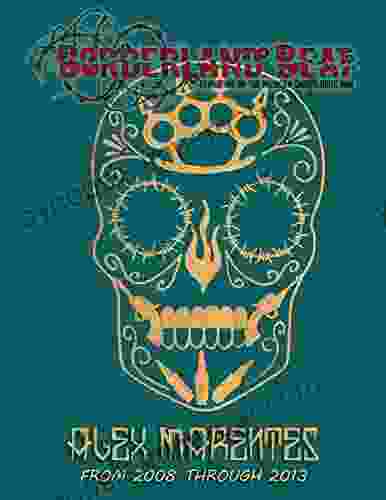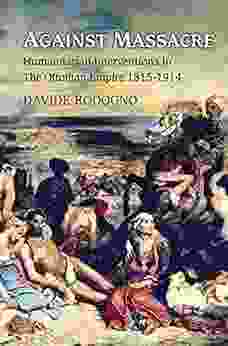Humanitarian Interventions in the Ottoman Empire, 1815-1914: Upholding Human Rights and Preserving International Order

The Ottoman Empire, a vast and influential empire that spanned centuries, played a pivotal role in shaping the course of global history. However, the empire's later years were marked by a series of humanitarian crises that sparked international outrage and prompted interventions from European powers. From the Greek War of Independence to the Balkan Wars, these interventions were driven by a complex interplay of humanitarian concerns, political interests, and the emerging concept of international human rights.
This comprehensive article explores the humanitarian interventions that took place in the Ottoman Empire during the period of 1815-1914. Through the lens of historical events, diplomatic correspondence, and the evolving principles of international law, we will delve into the motivations, challenges, and consequences of these interventions, uncovering their profound impact on the Ottoman Empire and the development of modern humanitarianism.
5 out of 5
| Language | : | English |
| File size | : | 1539 KB |
| Text-to-Speech | : | Enabled |
| Screen Reader | : | Supported |
| Enhanced typesetting | : | Enabled |
| Print length | : | 408 pages |
The Greek War of Independence: The Dawn of Humanitarian Intervention
The Greek War of Independence (1821-1829) marked a watershed moment in the history of humanitarian interventions. As the Ottoman Empire brutally suppressed the Greek uprising, a wave of sympathy swept across Europe. Philhellenic movements emerged in major cities, demanding intervention to protect the Christian Greeks from Ottoman atrocities.
In response to growing international pressure, Great Britain, France, and Russia formed the London Protocol of 1827, calling for a ceasefire and the establishment of an independent Greece. When the Ottoman Empire refused to comply, the Great Powers intervened militarily, ultimately forcing the Ottomans to recognize Greek independence in the Treaty of Adrianople (1829).
The Greek War of Independence set a precedent for future humanitarian interventions. It demonstrated the willingness of European powers to use military force to protect civilians from mass atrocities and established the principle of "humanity before sovereignty."
The Crimean War: Humanitarian Concerns vs. Geopolitical Rivalries
The Crimean War (1853-1856) was a complex conflict that erupted between the Russian Empire and an alliance of the Ottoman Empire, France, and Great Britain. While humanitarian concerns played a role in the war's outbreak, it was primarily driven by geopolitical rivalries between the major European powers.
The war's origins stemmed from Russian ambitions to expand its influence in the Balkans and the Middle East. When the Ottoman Empire refused to grant concessions to the Russian Orthodox Church, Russia invaded the Danubian Principalities (present-day Romania). In response, France and Great Britain declared war on Russia, fearing its growing power and the potential threat to their interests in the region.
Although the Crimean War was not solely a humanitarian intervention, the conflict highlighted the importance of protecting civilians during wartime. The war's atrocities, including the infamous Siege of Sevastopol, shocked Europe and led to the adoption of the Geneva Convention (1864),which established basic standards for the treatment of wounded soldiers and prisoners of war.
The Balkan Wars: Humanitarian Crises and the Decline of the Ottoman Empire
The Balkan Wars (1912-1913) marked a period of intense humanitarian suffering and political upheaval in the Ottoman Empire. The wars erupted as the empire's Balkan provinces sought independence, leading to a series of bloody conflicts between the Ottomans and the Balkan League (Serbia, Bulgaria, Greece, and Montenegro).
The Balkan Wars resulted in widespread atrocities, including massacres, forced deportations, and the destruction of entire villages. The international community, horrified by the violence, called for interventions to protect civilians and prevent further bloodshed.
Great Britain, France, and Russia attempted to mediate a ceasefire, but their efforts were hampered by conflicting interests and the unwillingness of the belligerents to compromise. Ultimately, the Balkan Wars contributed to the decline of the Ottoman Empire and paved the way for the outbreak of World War I.
The Armenian Genocide: A Dark Chapter in Human History
The Armenian Genocide (1915-1917) was one of the darkest chapters in human history. During this period, the Ottoman government systematically exterminated an estimated 1.5 million Armenians, targeting them for their Christian faith and perceived threat to Turkish nationalism.
The Armenian Genocide was met with international condemnation, but no effective intervention was taken to stop the atrocities. The failure of the international community to prevent or punish this crime against humanity has left a lasting stain on the history of humanitarianism.
The Legacy of Humanitarian Interventions in the Ottoman Empire
The humanitarian interventions that took place in the Ottoman Empire during the period of 1815-1914 had a profound impact on the empire, the development of international law, and the evolution of humanitarianism.
These interventions demonstrated the willingness of European powers to use military force to protect civilians from mass atrocities. They also contributed to the emergence of international human rights norms and the establishment of international organizations dedicated to humanitarian assistance and peacekeeping.
However, the Ottoman interventions also highlighted the challenges and limitations of humanitarian intervention. Political interests often overshadowed humanitarian concerns, and interventions were sometimes used as a pretext for territorial expansion or the pursuit of geopolitical objectives.
The humanitarian interventions in the Ottoman Empire during the period of 1815-1914 were a complex and multifaceted phenomenon. Motivated by a mix of humanitarian concerns, political interests, and the evolving principles of international law, these interventions left an indelible mark on the history of the Ottoman Empire and the development of modern humanitarianism.
Through the lens of historical events, diplomatic correspondence, and the evolving principles of international law, this article has explored the motivations, challenges, and consequences of these interventions, shedding light on their profound impact on the Ottoman Empire and the international community.
The legacy of humanitarian interventions in the Ottoman Empire remains relevant today. As we grapple with ongoing humanitarian crises around the world, it is crucial to learn from the past and strive for a more just and equitable international Free Download that upholds human rights and protects vulnerable populations from mass atrocities.
5 out of 5
| Language | : | English |
| File size | : | 1539 KB |
| Text-to-Speech | : | Enabled |
| Screen Reader | : | Supported |
| Enhanced typesetting | : | Enabled |
| Print length | : | 408 pages |
Do you want to contribute by writing guest posts on this blog?
Please contact us and send us a resume of previous articles that you have written.
 Book
Book Novel
Novel Page
Page Chapter
Chapter Text
Text Story
Story Genre
Genre Reader
Reader Library
Library Paperback
Paperback E-book
E-book Magazine
Magazine Newspaper
Newspaper Paragraph
Paragraph Sentence
Sentence Bookmark
Bookmark Shelf
Shelf Glossary
Glossary Bibliography
Bibliography Foreword
Foreword Preface
Preface Synopsis
Synopsis Annotation
Annotation Footnote
Footnote Manuscript
Manuscript Scroll
Scroll Codex
Codex Tome
Tome Bestseller
Bestseller Classics
Classics Library card
Library card Narrative
Narrative Biography
Biography Autobiography
Autobiography Memoir
Memoir Reference
Reference Encyclopedia
Encyclopedia Robert W Rentoul
Robert W Rentoul Swami Yogananda
Swami Yogananda John Oberdiek
John Oberdiek Derek Butt
Derek Butt Del Hahn
Del Hahn Teri Van Horn
Teri Van Horn Rasmus Kleis Nielsen
Rasmus Kleis Nielsen Owen R Chandler
Owen R Chandler David R Vletas
David R Vletas Dennis K Rayman
Dennis K Rayman Deesha Philyaw
Deesha Philyaw Markus Schaefer
Markus Schaefer David M Dorsen
David M Dorsen Nicholas Starks
Nicholas Starks David Roach
David Roach Paula Domenici
Paula Domenici Dilip M Menon
Dilip M Menon Deontae Jenkins
Deontae Jenkins Steve Dalton
Steve Dalton Lulu Jane
Lulu Jane
Light bulbAdvertise smarter! Our strategic ad space ensures maximum exposure. Reserve your spot today!

 W. Somerset MaughamDelmar Learning Clinical Handbook for the Medical Office: Your Comprehensive...
W. Somerset MaughamDelmar Learning Clinical Handbook for the Medical Office: Your Comprehensive...
 John SteinbeckHow I Bonded with My Nine-Year-Old Son by Running with Him Every Day for a...
John SteinbeckHow I Bonded with My Nine-Year-Old Son by Running with Him Every Day for a...
 Dylan MitchellUnveiling the Shadowy Underbelly: Exploring "Reporting On The Mexican Cartel...
Dylan MitchellUnveiling the Shadowy Underbelly: Exploring "Reporting On The Mexican Cartel...
 Sammy PowellOne Man's Struggle to Uncover the Truth About Mad Cow Disease and Variant CJD
Sammy PowellOne Man's Struggle to Uncover the Truth About Mad Cow Disease and Variant CJD Marvin HayesFollow ·13.3k
Marvin HayesFollow ·13.3k Austin FordFollow ·10.6k
Austin FordFollow ·10.6k Arthur Conan DoyleFollow ·9.6k
Arthur Conan DoyleFollow ·9.6k William ShakespeareFollow ·10.2k
William ShakespeareFollow ·10.2k Adrien BlairFollow ·11.2k
Adrien BlairFollow ·11.2k Leo MitchellFollow ·15.1k
Leo MitchellFollow ·15.1k Quentin PowellFollow ·14.9k
Quentin PowellFollow ·14.9k George BellFollow ·8.6k
George BellFollow ·8.6k

 Ivan Turgenev
Ivan Turgenev38 Art Made During The Pandemic Digitally Enhanced Art...
By [Author's Name] The year 2024 was a time...

 F. Scott Fitzgerald
F. Scott FitzgeraldAmazing Cooking Guide To South Beach Diet: Your Culinary...
Embark on a...

 Zachary Cox
Zachary CoxGeneral History of Chinese Film: A Journey Through Time...
Origins and...

 Cristian Cox
Cristian CoxUnderstanding Antidepressants: An In-Depth Guide to...
Unleashing the Power of...

 Jeremy Cook
Jeremy CookUnlock the NFT Revolution: A Comprehensive Guide for...
The world of Non-Fungible Tokens (NFTs) has...

 Kevin Turner
Kevin TurnerSeneca and Roman Slavery Under Nero's Rule: An In-Depth...
During the reign of...
5 out of 5
| Language | : | English |
| File size | : | 1539 KB |
| Text-to-Speech | : | Enabled |
| Screen Reader | : | Supported |
| Enhanced typesetting | : | Enabled |
| Print length | : | 408 pages |




